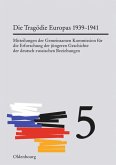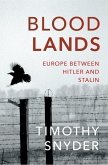This new study provides a concise, accessible introduction to occupied Europe. It gives a clear overview of the history and historiography of resistance and collaboration. It explores how these terms cannot be examined separately, but are always entangled.
Covering Europe from east to west, this book aims to explore the evolution of scholarly approaches to resistance and collaboration. Not limiting itself to any one area, it looks at armed struggle, daily life, complicity and rescue, the Catholic Church, and official and public memory since the end of the war.
Covering Europe from east to west, this book aims to explore the evolution of scholarly approaches to resistance and collaboration. Not limiting itself to any one area, it looks at armed struggle, daily life, complicity and rescue, the Catholic Church, and official and public memory since the end of the war.
"Resistance and Collaboration in Hitler's Empire offers an impressive synthesis of the literature on this expansive subject, functioning both as an accessible introduction for the student and a sober historiographical critique for the specialist. ... Resistance and Collaboration in Hitler's Empire is an excellent introduction to the subject for students and the general public alike. For the specialist, Drapac and Pritchard raise important questions, the answers to which will likely define the historiography in years to come." (Kirk Robert Graham, Australian Journal of Politics and History, Vol. 65 (1), 2019)








